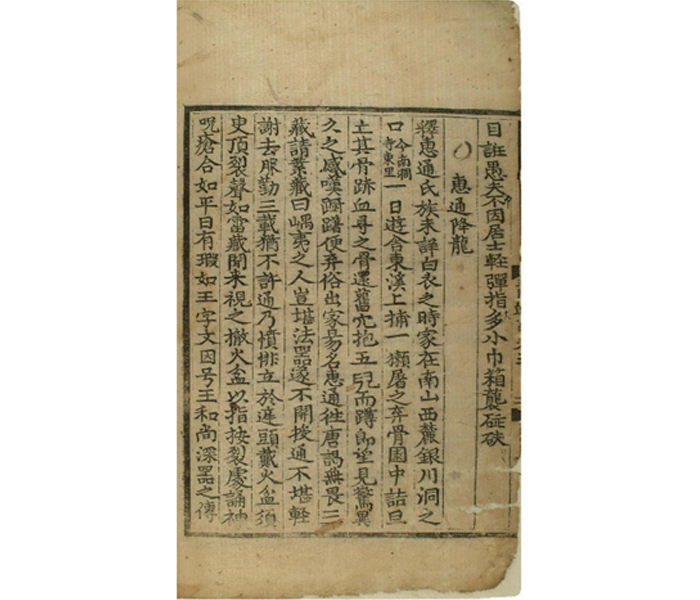(Translation) 惠通出家
| Primary Source | ||
|---|---|---|
 |
Title | |
| English | ||
| Chinese | ||
| Korean(RR) | ||
| Text Details | ||
| Genre | ||
| Type | ||
| Author(s) | ||
| Year | ||
| Source | ||
| Key Concepts | ||
| Translation Info | ||
| Translator(s) | Participants of 2018 Hanmun Summer Workshop (Intermediate Training Group) | |
| Editor(s) | ||
| Year | 2018 | |
Original Script
Translation
Petra Sváková
Monk Hyet'ong's family background is not known yet [but] when he was still a commoner his house was on the southern side of a mountain and on the west [there was] a foothill which was the entrance to Ŭnch'ŏndong. One day, he was roaming around and stayed above the east valley. [There] he caught one other, killed it and discarded [its] bones in the yard. Next morning, he lost the bones [but] he traced the blood to find it, the bones had returned to the old cave and were embracing five younglings, and [he] crouched down. He was gazing at it and was astonished for a long time. He was touched, sighed, hesitated [and then] immediately he discarded [his] secular life, became a monk1 and changed his name to Hyet'ong.
1 '出家' literally means 'to leave home' but in this context it has the meaning of 'becoming a Buddhist monk or nun'.
- Discussion Questions:
+ I'm not very sure about the translation of "家在南山西麓銀川洞之口"part.
(JG) In my notes, I had it as something like: "his house was at the western foot of Mount Namsan, near the entrance to Ŭnch'ŏn district"